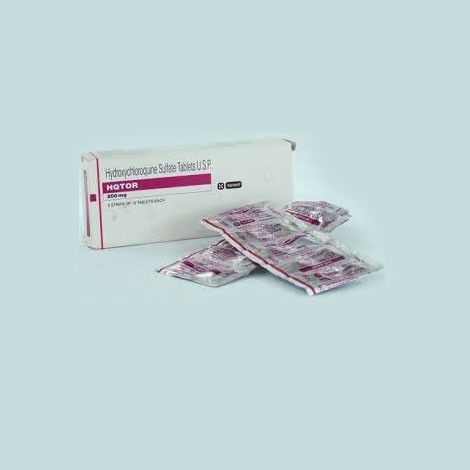Uses
Hydroxychloroquine is used to prevent or treat malaria caused by mosquito bites. The United States Center for Disease Control provides updated guidelines and travel recommendations for the prevention and treatment of malaria in different parts of the world. Discuss the most recent information with your doctor before traveling to areas where malaria occurs.
This medication is also used to treat certain auto-immune diseases (lupus, rheumatoid arthritis). It belongs to a class of medications known as disease-modifying antirheumatic drugs (DMARDs). It can reduce skin problems in lupus and prevent swelling/pain in arthritis.
Hydroxychloroquine is not recommended for coronavirus infection, also known as COVID-19, unless you are enrolled in a study. Talk to your doctor about the risks and benefits.
How to use Hydroxychloroquine SULFATE
Take this medication by mouth, usually with food to prevent stomach upset, exactly as directed by your doctor. The dosage and length of treatment are based on your medical condition and response to treatment. In children, dosage is also based on weight.
To prevent malaria, take this medication by mouth as directed by your doctor, usually once a week on the same day each week. Mark a calendar to help you remember. This drug is usually started 1 to 2 weeks before entering the malarious area. Continue to take it weekly while in the area and for 4 to 8 weeks after leaving the area, or as directed by your doctor. To treat malaria, follow your doctor's instructions.
For lupus or rheumatoid arthritis, take this medication by mouth as directed by your doctor, usually once or twice daily. Your doctor may gradually increase your dose. Once you have been taking the medication for a while and your condition has improved, your doctor may instruct you to lower your dose until you find the dose that works best with the fewest side effects.
If you are also taking a certain drug for diarrhea (kaolin) or taking antacids (such as magnesium/aluminum hydroxide), take hydroxychloroquine at least 4 hours before or after these products. These products may bind with hydroxychloroquine, preventing your body from fully absorbing it.
Use this medication regularly in order to get the most benefit from it. If you are taking it on a daily schedule, take it at the same time(s) each day. Take this medication exactly as prescribed. Do not stop taking it without talking with your doctor, especially if you are taking it for malaria. It is important to continue taking this for the length of time prescribed. Stopping prevention or treatment too soon may lead to infection or a return of the infection.
Tell your doctor if your condition lasts or gets worse. It may take several weeks or months to see improvement if you are taking this for lupus or arthritis. Hydroxychloroquine may not prevent malaria in all cases. If you experience fever or other symptoms of illness, get medical help right away (especially while in the malarious area and for 2 months after returning from the area). You may need a different medication. Avoid exposure to mosquitoes. (See also Notes section.
Precautions
Before taking hydroxychloroquine, tell your doctor or pharmacist if you are allergic to it; or to chloroquine; or if you have any other allergies. This product may contain inactive ingredients, which can cause allergic reactions or other problems. Talk to your pharmacist for more details.
Before using this medication, tell your doctor or pharmacist your medical history, especially of: a certain enzyme problem (glucose-6-phosphate dehydrogenase deficiency-G6PD), vision/eye problems, hearing problems, kidney disease, liver disease, regular alcohol use/abuse, skin problems (such as psoriasis), a certain blood disorder (porphyria), seizures.
If you have diabetes, this product may affect your blood sugar. Check your blood sugar regularly as directed and share the results with your doctor. Tell your doctor right away if you have symptoms of low blood sugar (see Side Effects section). Your doctor may need to adjust your diabetes medication, exercise program, or diet.
This drug may make you dizzy. Alcohol or marijuana (cannabis) can make you more dizzy. Do not drive, use machinery, or do anything that needs alertness until you can do it safely. Avoid alcoholic beverages. Talk to your doctor if you are using marijuana (cannabis). Alcohol can also increase your risk of liver problems while you are taking this drug.
Overdose
If someone has overdosed and has serious symptoms such as passing out or trouble breathing, call 911. Otherwise, call a poison control center right away. US residents can call their local poison control center at 1-800-222-1222. Canada residents can call a provincial poison control center. Symptoms of overdose may include: fast/irregular heartbeat, fainting, slow/shallow breathing, seizures.
Notes
Do not share this medication with others.
Lab and/or medical tests (such as eye exams, reflex tests, liver function, EKG, complete blood counts) should be done if you are taking hydroxychloroquine for a long time. Keep all medical and lab appointments. Consult your doctor for more details.


